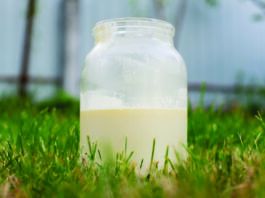Q: In your June 2007 newsletter you reported the recommended AREDS antioxidants combination to...
Answer :Copper is an essential mineral with an established Recommended Dietary Allowance (RDA) of 900 micrograms (0.9 milligrams) per day for adults and a Tolerable Upper Intake Level (UL) of 10,000 micrograms (10 milligrams) daily. (The UL is the maximum daily intake of a nutrient that is likely to pose no risks of adverse health affects for almost all individuals.) According to Jeffrey Blumberg, PhD, director of the Antioxidants Research Laboratory at Tufts Jean Mayer…
Q: Xango is a liquid fruit product made from mangosteen and other fruits. Are...
Answer :Known as the queen of fruits, the exotic mangosteen originates in Southeast Asia, where its used in traditional medicine to treat diarrhea, wounds and skin infections. Numerous companies have been promoting the health benefits of juices and supplements made from mangosteen as well as acai, aronia, camu camu, chasteberry, wolfberry and other exotic fruits. Mangosteen fruit is high in organic compounds called xanthones as well as alpha- and gamma-mangostins; various in vitro (test tube)…
Q: What is the latest health information on Krill Oil? I hear good things...
Answer :Krill are tiny shrimp-like crustaceans that whales feed upon. Its true that krill oil contains the omega-3 fatty acids DHA and EPA, which have been associated with reduced risk of cardiovascular disease and age-related macular degeneration, relief for rheumatoid arthritis and possibly even protection against cognitive decline and Alzheimers disease. (See our Special Report on omega-3s in the July 2007 Healthletter.) But krill-oil pills may actually be lower in omega-3s than regular fish-oil capsules. …
Q: I have heard that decaffeinated coffee promotes arthritis. Is this true?
Answer :Earlier research did suggest an association between decaffeinated coffee consumption and increased risk of rheumatoid arthritis (RA), the less-common form of arthritis (as opposed to osteoarthritis). A 2004 study of some 75,000 participants in the long-running Nurses Health Study, however, concluded that there is no link between either decaffeinated or regular coffee consumption and increased RA risk. According to the lead investigator, Elizabeth W. Karlson, MD, of Harvard Medical School, the data supporting the…
Q: I have read that when buying bread and cereals, one should look for...
Answer :Whole wheat is one type of whole grain, which simply means any grain that retains the entire kernel-bran, germ and endosperm. White flour and bread are made from only the endosperm of the wheat, and contain only a quarter of the fiber of whole-wheat products. In Canada, however, cautions Cynthia Harriman, director of food and nutrition strategies for the Whole Grains Council www.wholegrainscouncil. org, whole wheat can be missing up to 5% of the whole…
Q: Ive heard a lot about arthritis sufferers consuming ginger to reduce inflammation and...
Answer :Although ginger seems to be effective against nausea and vomiting, especially that related to pregnancy, the jury is still out on the medicinal use of this popular cooking ingredient against arthritis symptoms. One 2005 study did show anti-inflammatory effects for ginger. But a 2007 review of the medical literature concluded that the results on ginger for the treatment of arthritis are mixed. The National Center for Complementary and Alternative Medicine (NCCAM), which is currently…
Q: In your November 2007 issue, you said that experts prescribe strength training for...
Answer :An excellent starting point is the Growing Stronger: Strength Training for Older Adults program, developed by experts at Tufts and the Center for Disease Control and Prevention. Growing Stronger is an exercise program based upon sound scientific research involving exercises that have been shown to increase the strength of your muscles, maintain the integrity of your bones, and improve your balance, coordination and mobility. At the Web site growingstronger.nutrition.tufts.edu you can jump right into…
Q:I have been hearing about cinnamon as a cure or at least a treatment...
Answer :A 2003 study of 60 people with type 2 diabetes did find that intake of one to six grams of cinnamon daily improved blood glucose levels, as well as lipid factors (such as cholesterol) important to cardiovascular disease. Subsequent research on possible benefits for diabetics from the popular spice, however, have been disappointing. Most recently, two reviews of the scientific literature both came to similar negative conclusions: Based on the currently available evidence, cinnamon…
Q: Whats the safe level of daily vitamin D? Is it different for older...
Answer :The recommended intake of vitamin D-but not the safe limit-does increase with age: The Institute of Medicine has set the daily adequate intake for adults ages 19 to 50 at 200 IU of vitamin D, for ages 51 to 70 at 400 IU, and for those older than age 70 at 600 IU. Many experts, however, argue that those levels should be raised, and research has shown that 800 to 1,000 IU daily may…
Q: I am enclosing an article from a local newspaper warning people to avoid...
Answer :The article in question warns about the dangers of mercury and other contamination in tuna and other fish, concluding that Fish is anything but health food. While its wise to be wary of potential toxins in fish, the consensus of scientists who have examined the evidence-as opposed to taking an ethical stand, as PETA does, that animals are not to eat-is that fish is in fact one of the healthiest foods you can include…

























